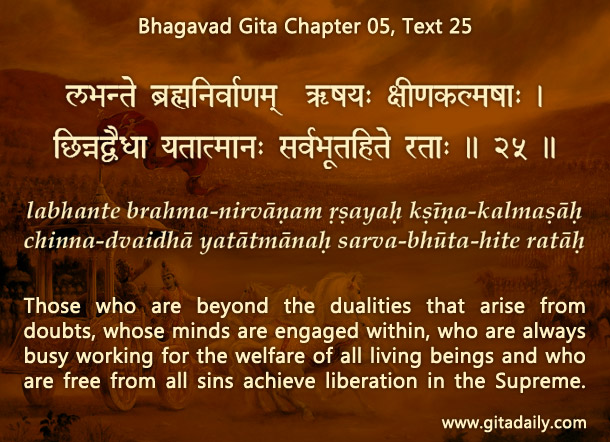Many people nowadays evaluate spirituality in utilitarian terms – they value it only for its tangible social benefits.
Undoubtedly, spirituality does promote social well-being. When people start practicing spirituality, their craving for self-centered gratification decreases. Thus, they become more capable of caring, sharing and harmony – all laudable goals for any progressive society.
Still, promoting social well-being at the material level is not spirituality’s primary purpose. Its main purpose is to address the fundamental existential dilemma that no material measure can eradicate: the dilemma of our impending, inevitable mortality.
Spiritual texts inform us that our longing for life immortal comes from our non-material essence. We are at our core eternal souls and are meant for a life of eternal love with Krishna at the spiritual level of reality. To achieve this eternal life, we need to become spiritual activists. We human beings are meant to enquire about this immortal level of reality, as the first sutra of the Vedanta-sutra exhorts athato brahma jijnasa (1.1.1).
How such spiritual activists contribute to society is stated in the Bhagavad-gita (05.25): Sages who are purified internally strive externally for everyone’s well-being. They direct their activities, and indeed their spirit of activism, towards accessing inner spiritual happiness. The more they relish such happiness, the more they strive compassionately to elevate everyone towards similar contentment, thereby countering the materialistic rat-race that is essentially a zero-sum game.
Unfortunately, those who evaluate spirituality only in utilitarian terms can’t appreciate the substantial time and energy invested in spiritualizing human consciousness. By keeping their eyes locked to the material level of reality, they lock themselves and their society out of spiritual reality wherein resides lasting well-being.
Nonetheless, if they open-mindedly explore life’s spiritual side, they will discover that spirituality promotes not just social well-being but total well-being.
To know more about this verse, please click on the image
Explanation of article:
Podcast:


Leave A Comment